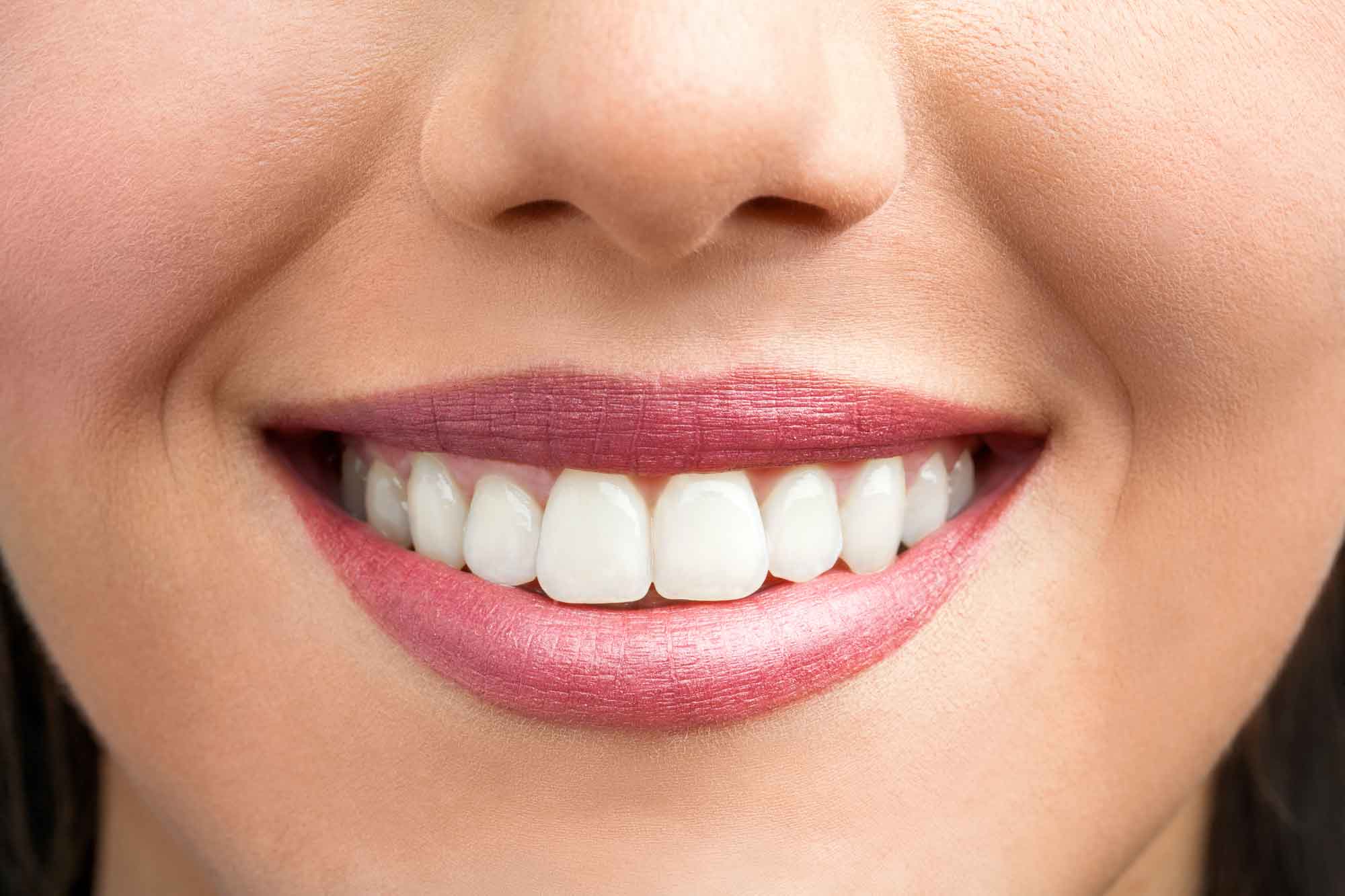We brush and floss our teeth because we want to keep them in pristine condition. Besides keeping them clean and healthy, most people would also like their teeth to look bright and dazzling. In fact, studies have shown that 80% of Americans want whiter teeth.
At Dee For Dentist, we offer professional teeth whitening, along with a variety of other dental cosmetic services. Our clinic provides various procedures for whitening teeth, including both in-office and at-home options, to help you achieve a brighter smile.
If you’re looking to get a brighter smile, try our teeth whitening service in Las Vegas, NV. Our friendly dental staff make sure to listen to your concerns and assess your oral health. This helps us formulate the best possible treatment plan for your needs.
Introduction to Oral Health
Oral health is a crucial aspect of overall well-being, and a healthy smile can greatly impact one’s confidence and self-esteem. Tooth whitening, also known as teeth whitening, is a popular cosmetic dental procedure that can help achieve a brighter, more radiant smile. However, it’s essential to consider the potential risks and side effects of tooth whitening, such as tooth sensitivity and gum irritation.
A regulated dental professional can help determine the best course of treatment for individual oral health needs and provide guidance on teeth whitening methods. Good oral hygiene practices, such as regular brushing and flossing, are essential for maintaining healthy teeth and gums and can also help prevent tooth discoloration. By keeping your teeth and gums in top condition, you can ensure that your smile remains bright and beautiful.
Understanding Natural Teeth
Natural teeth are composed of tooth enamel, dentin, and pulp, and their color can vary from person to person. Tooth enamel is the hardest substance in the human body, but it can still be susceptible to staining and discoloration. The color of natural teeth can be influenced by factors such as genetics, diet, and oral hygiene habits.
Teeth whitening products and procedures can help remove surface stains and whiten teeth, but it’s essential to understand the limitations and potential risks of these treatments. A dental professional can help determine the best approach for achieving a whiter, brighter smile and provide guidance on how to maintain good oral health. By understanding the nature of your natural teeth, you can make informed decisions about the best whitening methods for you.
How Does Teeth Whitening Work?
When you eat or drink, a thin film of accumulated particles covers your enamel (i.e., the outermost layer of your teeth). While this film can be removed with a combination of brushing and dental cleaning, it often works its way into the porous enamel. The removal of the dental pellicle makes teeth more susceptible to staining shortly after the whitening procedure.
This leads to staining, which is hard to remove even when the teeth are properly cleaned.
Teeth whitening makes use of either a carbamide or a hydrogen peroxide-based bleaching agent. The bleach breaks down the stains in your enamel, allowing the discoloration to become less concentrated. This makes your teeth whiter.
In-office teeth whitening uses high concentrations of 15-43%, which is why it needs to be handled by a professional. The bleaching gel is placed on your teeth for about 15-30 minutes before it is washed off. Your dentist will reapply it until the ideal shade is achieved. Light activation is sometimes used in these procedures, but there is debate over its effectiveness, with some studies showing no significant benefits and cautioning against potential adverse effects like increased tooth sensitivity.
The bleaching solution used in in-office procedures is more potent than at-home products. During the procedure, your dentist makes sure to keep all your teeth exposed with a cheek retractor. To protect your gums from irritation, they’ll paint on a liquid rubber dam or a hardening resin over them.
Teeth Whitening Methods
There are several teeth whitening methods available, including in-office whitening, at-home whitening kits, and whitening toothpastes. In-office whitening, also known as professional teeth whitening, typically involves the use of a high-concentration bleaching agent and can produce faster results. At-home whitening kits, on the other hand, are more convenient and cost-effective, but may require more frequent applications and can be less effective.
Whitening toothpastes and mouthwashes can help maintain a whiter smile, but may not be as effective as other teeth whitening methods. Laser whitening and other advanced teeth whitening procedures can also be effective, but may be more expensive and require multiple sessions. Consulting with a dental professional can help you choose the best whitening method to achieve your desired results.
Does Teeth Whitening Work For Everyone?
Not everyone is suitable for teeth whitening. Because the bleach breaks down parts of your teeth’s enamel, it may also risk your teeth becoming hypersensitive. Thus, teeth whitening may not be suitable for patients with sensitive teeth.
If the stains are only surface level, then your teeth can become up to 8 shades lighter. However, for intrinsic discoloration (e.g., discoloration caused by tooth decay), teeth whitening might not be able to lift a lot of discoloration. Intrinsic staining, caused by factors like tooth decay, may not be effectively treated by conventional whitening methods. Extrinsic staining, caused by external factors like food and beverages, can be effectively addressed through various whitening methods.
In this case, your dentist may suggest treating the underlying problem before getting teeth whitening.
Considerations for Sensitive Teeth
Tooth sensitivity is a common side effect of teeth whitening, particularly when using high-concentration bleaching agents. Individuals with sensitive teeth may need to use specialized toothpaste or mouthwash to help alleviate sensitivity. A dental professional can help determine the best approach for teeth whitening with sensitive teeth, and provide guidance on how to minimize discomfort.
It’s essential to follow the manufacturer’s instructions and use teeth whitening products as directed to minimize the risk of tooth sensitivity. In some cases, teeth whitening may not be recommended for individuals with extremely sensitive teeth, and alternative treatments such as dental bonding or veneers may be more suitable. Always consult with a dental professional to ensure the best care for your sensitive teeth.
Impact on Dental Work
Teeth whitening can have an impact on dental work, such as fillings, crowns, and implants. Dental restorations may not respond to teeth whitening in the same way as natural teeth, and may require special consideration. A dental professional can help determine the best approach for teeth whitening with dental work, and provide guidance on how to maintain the integrity of the restorations.
In some cases, teeth whitening may not be recommended for individuals with certain types of dental work, and alternative treatments such as dental bonding or veneers may be more suitable. It’s essential to consult with a dental professional before undergoing teeth whitening, particularly if you have dental work or are considering dental restorations in the future. By seeking professional advice, you can ensure that your smile remains consistent and beautiful.
How Long Does Teeth Whitening Last?
In-office teeth whitening can last you up to 1-3 years, especially if you maintain good oral hygiene. Maintaining good oral hygiene is crucial for prolonging the whitening results. Compared to other whitening methods, such as strips or at-home kits, professionally done whitening can give you instant results that last longer. Using touch-up treatments, such as custom-fitted trays or take-home bleaching kits, is important to maintain the whitening effect over time.
Get Professional Teeth Whitening in Las Vegas, NV
To achieve a brighter and healthier looking smile, talk to your dentist to know if teeth whitening will work for you. We will gladly assess your oral health while listening to your concerns.
If you’re wanting to get teeth whitening in Las Vegas, NV, contact us at (702) 586-7800 or complete a contact form to book an appointment today! Professional teeth whitening procedures are performed in a dentist’s office for optimal results. We’re always happy to help our patients get a brighter, cleaner smile.

